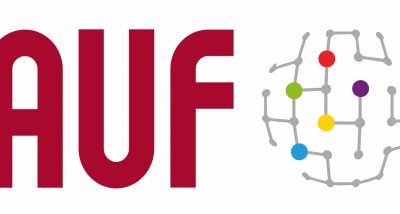
Since the health crisis, companies have been affected by huge moments of uncertainty. Market intelligence is no longer a choice, but a necessity for organizations, whatever their size, to anticipate and better deal with events that could once again upset the "norm". It is not only a risk or crisis market intelligence, but above all a competitive intelligence that allows to identify alternatives or strategic opportunities. Preparing upstream for a transformation or a strategic reorientation has become essential for any company that wants to assure the sustainability of their activities in the short, medium, and long term.
Choose the right monitoring solution to achieve your objectives
Once the situation has been identified, the next step is to set up, restructure or reinforce the market intelligence process. The question often arises, in a binary way, between choosing an internal system, or choosing to outsource market intelligence services to a consulting company or a market intelligence agency.
The main difficulties that often lead to the decision to opt for an external system are the lack of time to carry out the market intelligence, a lack of resources or even internal skills, and lastly not knowing how to structure the process.
The respective advantages of outsourcing and insourcing
Outsourcing business intelligence is :
- Saving time
- Keeping an objective view
- Flexibility in terms of human resources and budget
- Gain perspective
The internalization of the system allows to :
- Capitalize on internal knowledge
- Bringing in a more advanced business expertise
- Increase the competence of the teams
- Mobilize existing internal resources
Every company and organization are different, there is no simple answer, but there are factors to consider when choosing between an internal solution, an external solution, or an hybrid solution.
Factors to consider in choosing the right solution
Before making a choice, some crucial questions must be discussed.
The term "market intelligence", even if it is now democratized, is sometimes confused with a need for information research. Determining whether you really need to set up a market intelligence or to carry out an information search is a first essential step in the decision process, and one that must be considered when choosing a solution. Determining whether you really need to set up a watch or rather to carry out an information search is the first essential step in making a decision. If it is more a question of searching for information, then an outsourced solution could be the most relevant to provide available information on specific subjects.
Some competitive intelligence may be very technical and require internal skills that will be more difficult to delegate to a consultant or an external analyst. In this case, the "internal" solution will certainly be selected. With this in mind, we could get "lost" in a technicality that is not always necessary. The viewpoint of an expert from outside the company can be beneficial in order to get out of the jargon and to simplify the subjects in view of a strategic reorientation.
Starting with an existing system, whether it is a network of contributors or a centralized market intelligence unit is obviously not the same thing as starting from zero. Whatever the degree of maturity or the level of internal structuring, the most important thing is to establish the context and to evaluate the relevance of the current structuring in relation to the objectives expected by the management. Carrying out an audit at this stage is therefore extremely relevant to ask the right questions and start the project in the right way...
Depending on the company culture or simply the type of business intelligence to be done, it may be more or less relevant to externalize.
This is not an easy question. Unless they are information specialists, the teams identified to do market intelligence probably have other tasks and responsibilities that might suggest that they "don't have the time". For these reasons, it is important to adapt management's expectations with the amount of time that could be dedicated to business intelligence, in order to evaluate if an external and flexible contribution could fill the gaps on specific subjects.
All these questions must be asked before the choice is made, in close collaboration with the management and taking into consideration the strategic and organizational aspects.
A hybrid solution for greater flexibility in the process
An internal market intelligence system can be strengthened, depending on the need, by producing some deliverables externally. Providing an external service with deliverables on trends or inspirational subjects allows teams to be fed by an external viewpoint with added value in terms of time spent and analytical skills.
What about leaves, departures, or breaks? In the case of a hybrid solution, additional support can be deployed during a short transition period linked to the hazards of available human resources.
Externalizing at critical moments in the life of the company or during major transformations
Even if an internal solution is preferred, it can make sense to call on an external service during internal or external transformations of the organization. For example, we can mention a period of strategic restructuring following an external growth (merger, acquisition) or a major change in shareholding, or even a period of internal restructuring (organization of teams, change of employees). External support can then help the company during this transition period when the teams in charge of market intelligence change positions.

A period of transformation following a politico-social upheaval (war, crisis, shortages...) triggering a sudden change of strategic direction, can also encourage the company to call on an external service. On the contrary, a crisis or a period of major transformation can be an opportunity to increase the competence of its teams and to capitalize on internal knowledge to prepare strategic choices.
No solution is irreversible

Good news : nothing is irreversible ! Marie Frizot, Customer Success Manager at Sindup, has been supporting clients for several years in the evolution of their market intelligence systems, whether they are internalized, outsourced, or in a hybrid mode.
"We believe that the choice should not be binary, but rather that the market intelligence solution should maintain a certain flexibility and the possibility of adapting to the strategic and organizational hazards of the company or organization.
Do not hesitate to contact us to discuss your business intelligence project and ambitions with a consultant.
